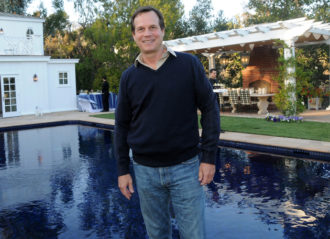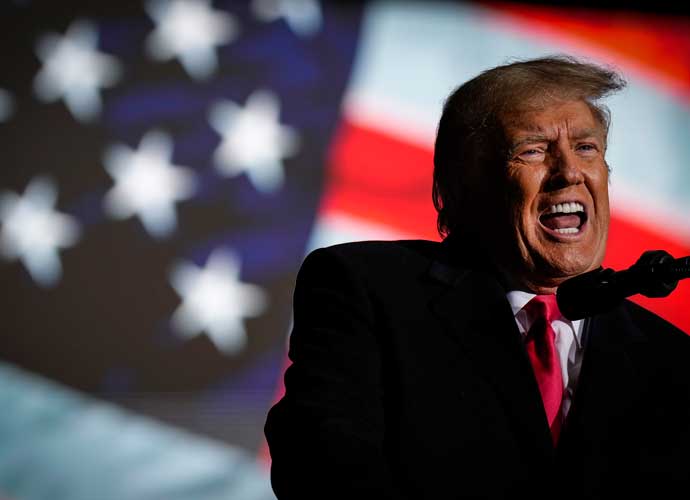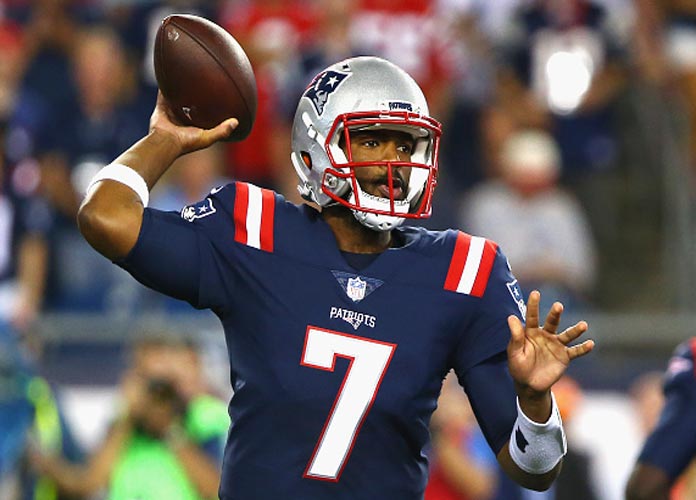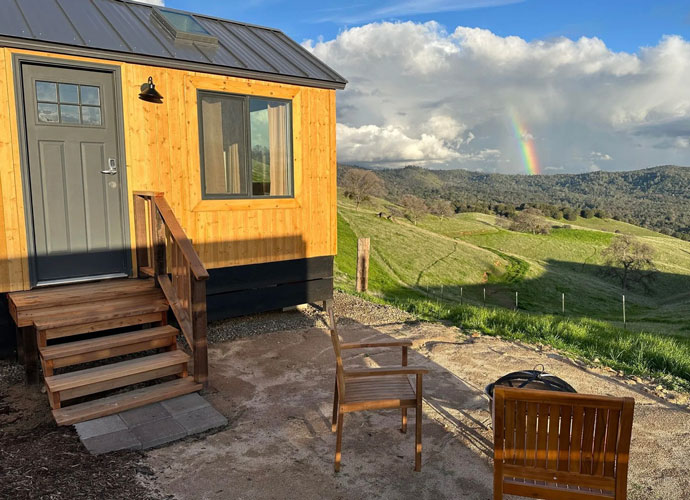Sally Quinn On Late Husband Ben Bradlee, ‘The Washington Post,’ JFK & Watergate [VIDEO EXCLUSIVE]
Sally Quinn, the editor and widow of the late Ben Bradlee, met her future husband at a job interview for the Washington Post. That’s just one of the remarkable stories in the new HBO documentary The Newspaperman, which covers the life and work of Bradlee.
“I had been hired to be the secretary for the editorial page editor and he said, ‘you must meet Ben Bradlee,’ and he took me in to meet Ben and I was totally dazzled,” Quinn told uInterview in an exclusive video. “I thought he was the Sun King. I couldn’t believe how attractive he was, and then I left and the next day I got fired because the editor said I was overqualified to be a secretary because I couldn’t type and I couldn’t file. A couple of year passed and I got a call from this gruff voice on the other end of the line saying would you like to come in for an interview to be a party reporter, and he said, ‘my name is Ben Bradlee, I’m the editor of the Washington Post,’ and I thought, ‘oh, as if I didn’t know.’ And so I went in and interviewed him and we got along really well. He was 20 years older than I was and he was married, but I just thought he was the most sexy, dynamic, incredible, charismatic man I ever met in my life. I was completely bowled over. And for some reason I was very cheeky and very feisty with him, so we got into this sparring relationship. At the end of the interview, he said, ‘well. I’d like to see something you’ve written,’ and I said, ‘well, I’ve never written anything.’ And he said, ‘well, nobody’s perfect. You’re hired.'”
Quinn began covering parties in DC, which essentially meant she was covering politics. Four years later, she found herself in the middle of Watergate, reporting for the Post. She and Bradlee flew down to Miami together and it was there that the pair fell in love, though neither admitted it at the time. “I actually went to one of my friends and said I’m gonna tell him, and he said you can’t do that because if he took you up on it, it would destroy Watergate – it would destroy the story, the paper, the country, you can’t, you have to put your country first. And being an Army brat, of course, it was the only thing he could say to me that would make a difference, so I didn’t say anything. And then I quit the paper to go to New York to be the first network anchorwoman in America, and told him after I quit that I was leaving because I was in love with him. And he said, ‘well, I can’t believe it, I’m in love with you too.’ And so we ended up together. And four or five months later we came out as a couple and we were together 43 years.”
As for the reaction to Quinn and Bradlee’s relationship, Quinn says it was a shock for many. “People were really stunned, but at that point, when we got together, was after I had left the paper. I came back to Washington and people didn’t quite know how to handle it, it was sort of a scandal,” she said. “But Katharine Graham, who was the publisher of the paper… I quit CBS to come back to be with Ben, and she had a big dinner party that night and she invited me and Ben to come, and the minute we walked in the door, everybody said, ‘ok, they’re accepted.'”
As for the Watergate scandal, Quinn noted the personal risk Bradlee took with breaking the story. “Ben and I got together in the middle of Watergate, and it was just becoming a major story. When we went down to the convention in Miami, Nixon was being reelected,” she said, setting the scene. “I knew that Ben was concerned about it, but he always, always trusted his reporters, and he believed in the story. And it was just a gut feeling… He thought there was a story there and he pursued it and pursued it, and if other people didn’t, then that was their bad luck… and he was right, and they won. He wasn’t reckless ever, he wasn’t out on a limb.”
Bradlee did at points fear for his own life because of Watergate. “Some of these people were crazy and you just never knew what they were gonna do. And I think Ben always thought that his house was bugged, and he was being followed, and his phones were bugged. I think they were very wary… I don’t think they thought they were in any eminent danger of getting murdered, but on the other hand, I don’t think they ever ruled it out.”
Bradlee and John F. Kennedy had been friends for a long time prior to Kennedy becoming president. “They lived next door to each other and they became best friends, and they saw each other all the time,” Quinn explained. “When [Kennedy] was elected president, as Jack said to Ben, ‘you don’t make new friends once you’re in the White House.’ They relied a lot on their old friends, and Ben and Toni, his then-wife, were there three times a week. I think with Ben and Jack Kennedy, it’s always a double-edged sword because if you do have a friend who’s a good source, then you get a lot more information than you normally would and it can be very helpful for your career.” They would use each other for information and for good press, while knowing the rules of the game and respected each other. “‘All I ask is that you wait until 10 years after I’m out of office before publish anything,’ [JFK told him], and after the assassination, Ben wrote his book Conversations with Kennedy… They were always wary of each other because both of them understood that they were walking the line, but that is not an unusual situation in Washington.”
The men even encountered a situation where Kennedy hit on Bradlee’s wife at the time. “Jack Kennedy was famous for that,” Quinn laughed. “But in those days, people didn’t write about that sort of thing. But I think Toni was more flattered than anything else, and of course she didn’t tell Ben for a long time… I don’t think Ben took it all that seriously.”
The Newspaperman is now available on HBO.
Full interview transcript below:
Q: What attracted you to Ben Bradlee in your first meeting?
A: “I had been hired to be the secretary for the editorial page editor and he said ‘you must meet Ben Bradlee’ and he took me in to meet Ben and I was totally dazzled, I thought he was the Sun King and I couldn’t believe how attractive he was and then I left and the next day I got fired because um my, the editor said I was over qualified to be his secretary because I couldn’t type and I couldn’t file so. A couple years passed and I uh got a call from this gruff voice on the other end of the line saying, ‘would you like to come in for a job interview to be a party reporter?’ and he said ‘my name is Ben Bradlee, I’m the editor of the Washington Post’ oh as if I didn’t know, if I didn’t remember. And so I went in and interviewed him and with my little white gloves and uh and we just- we got along really well I mean he was 20 years older than I was and he was married but I just thought he was the most sexy, dynamic, incredible, charismatic man I’d ever met in my life, I was completely bowled over. And for some reason I was very cheeky and very feisty with him and so we got into this sort of sparring relationship. We had a great interview and at the end of the interview he said, ‘well I’d like to see something you’ve written’ and I said ‘well I’ve never written anything’ and he said ‘well nobody’s perfect ahha you’re hired.’ And so he did hire me and I started covering parties which in Washington is like covering politics because you’re covering official functions. And it was four years later that we were on the same plane down to the convention in Miami, we were seated together by the post travel people and both of us fell in love with each other on the plane down although we didn’t admit it to each other until about a year later. And it was a year later right in the middle of Watergate um where I was in live with him and I didn’t know he was in love with me and I actually went to one of my friends and said, ‘you know I’m, I’m in love with Ben Bradlee and I’m gonna tell him’ and she said ‘you can’t, you can’t do that because if he took you up on it- it would destroy the Watergate. It would destroy the story, the paper, the country, you can’t you have to put your country first and being an Army brat of course it was the only thing he could say to me that would make a difference so, I didn’t say anything. And then I quit the paper to go to New York to be the first network anchor woman in America and told him after I quit that I was leaving because I was in love with him. And he said well I can’t believe it because I’m in love with you too. So um we ended up together and six, four, five months later we came out as a couple and we were together for 43 years.”
Q: What was the impact when you came out about your relationship?
A: “I think it was- people were really stunned I mean that, but at that point when we got together was after, after I had left the paper. And um I came back to Washington and there was- people didn’t quite know how to handle it, it was sort of a scandal. But Katherine Graham who was the publisher of the paper and who sort of made, who decide who was in and who was out uh I quit CBS to come back to be with Ben on December the 7th I left CBS Morning News and she had a big dinner party that night and invited Ben and me to come. And the minute we walked in the door everybody said ‘ah okay, shh their accepted, it’s accepted.’”
Q: What ethical issues did Ben feel about covering his friend JFK?
A: “Well he, you know they met when Ben was at News Week and Jack Kennedy was a Senator and they lived next door to each other. And they became best friends and their kids were, they were honorary godparents of their two children and they saw each other all the time and when he was elected president as Jack said to Ben ‘you don’t make new friends once you’re in the white house’ you know and so they were very they relied a lot on their old friends and Ben and Tony and his wife were there you know, three times a week. I think that with Ben and Jack Kennedy you know it’s always a double-edged sword because if you do have a good friend who’s a good source then you get a lot more information than you normally would and it can be very helpful to your career so obviously Ben was using Jack to get more information and Jack was using Ben to hopefully get better press uh and so but both of them understood that, that was part of the game and I think at one point Ben said early on ‘look, I’m taking notes on everything that we say every night when I go home I write down my notes and Jack said ‘well I just assumed that, all I ask is that you wait until ten years after I’m out of office to publish anything.’ And after ten years, after the assassination Ben wrote his book “Conversations with Kennedy” um which he basically just put, it was a love letter really but he really published his conversations. And and there was a time when Ben published something that really made Jack angry and he was very upset, he didn’t like it and so he banished Ben from the White House for about three months and they didn’t speak. And then Jackie and Tony, Bens wife, got together and said this is ridiculous you know they missed each other terribly, so they finally made up and Jack you know welcomed Ben back into it but you know they were always wary of each other because both of them understood you know that they were walking the line. That is not an unusual situation in Washington.”
Q: What was Ben’s reaction after learning JFK was hitting on his wife?
A: “Jack Kennedy was famous for that and I hate to think what would even happen today if he were still playing those games. Hahah it wouldn’t stay quiet very long uh but in those days people didn’t write about that sort of thing and um I think Ja- Tony was more flattered than anything else and of course she didn’t tell Ben for a long time I mean she didn’t wait, she told Ben after Jack had been assassinated. And I don’t think he was all that I mean I think by that time he had learned that Jacks reputation, he knew that he did it with everybody and you know I think he was disappointed on some level but I also thought, that I think he just sort of thought put it aside and thought look he was a really great friend and um if, if that had been the only time he did it but that seemed to be his MO and I don’t think Ben took it all that seriously.”
Q: How did Ben feel during the time the Post alone was covering Watergate?
A: “Well Ben and I got together in the middle of Watergate and um it was just becoming a major story, well when we went down to the convention in Miami together on the plane uh that was- Nixon was being reelected and even though the Watergate story had already sort of appeared um but um so I knew that Ben was concerned about it but he always, always trusted his reporters and he believed in the story and he- it was just a gut feeling I mean you know people used to say Ben had the guts of a burglar and he did you know, he was the jewel thief. Ahah and you know he, he thought there was a story there and he just pursued it and pursued it and if other people didn’t than that was their bad luck and and of course it made Kay nervous but I honestly, I don’t think Kay would have um gone along with it as much as she did had it not been for the Pentagon Papers. Because that preceded Watergate when the Washington Post published uh the Pentagon Papers after the New York Times had been enjoined by the courts not to publish and Ben went ahead and published it anyway, knowing that they could lose their licenses and they were about to go public and Kay trusted Bens judgement then and in fact he was right and they won and so I think given that, she trusted his instincts and you know he wasn’t reckless, ever. He wasn’t out on a limb um and so I, I know that I mean there was one point right before we got together where Ben walked into the office and he was walking out of the office and I was walking out and we were at the elevator together and this is after we had been on that plane together, and but neither one of us had confided that we loved each other and he, he had his eye was sort of like this and I said ‘what’s the matter with your eye?’ and he said ‘I don’t know, I’m on the way to the neurologist’ he said, ‘I don’t know, I think I have a brain tumor’ ahha and I was at that point I was calling him Mr. Bradley ‘Mr. Bradley are you okay?’ you know, and it turned out it was stress. But he never led on to anybody, ever in the paper. I mean he was the coolest dude you ever saw which was you know let’s get out there, let’s get that story, you know let’s keep going. We got it, we got it.”
Q: Did Ben ever fear for his life?
A: “Yes he did I think Woodward and Bernstein did too. I mean they, they- some of these people were crazy. Um and you just never knew what they were gonna do and I think Ben always thought and they all did that their houses were bugged and that they were you know being followed and their phones were bugged and um I think that at one point someone came up to Bernstein on the street and tried to sell him marijuana you know which was clearly looked like a set up so uh, uh I mean I think they were very wary which was one reason why you know why my friend said to me ‘you can’t tell Ben you love him because this could be, it could topple the whole thing.’ And um he was right because you know if Ben got caught or got blackmailed or I mean well he would have never allowed himself to be blackmailed but if he had gotten caught it would’ve been a catastrophe but I think you know there was one scene in the movie All The Presidents Men in the book where they uh um Bob and Carl go to Ben’s house and he comes out in his bathrobe and they talk on the lawn because he didn’t feel like it was safe to talk inside the house. So yeah so I mean I don’t think they thought they were in any imminent danger of getting murdered but on the other hand I don’t think they ever ruled it out.”
RELATED ARTICLES
Get the most-revealing celebrity conversations with the uInterview podcast!



![Sally Quinn On Late Husband Ben Bradlee, ‘The Washington Post,’ JFK & Watergate [VIDEO EXCLUSIVE]](https://cdn-o9.uinterview.com/wp-content/uploads/2017/12/Sally_Quinn_crop.jpg)
 Click here for the In Memoriam: Celebrities Who Died In 2017 Slideshow
Click here for the In Memoriam: Celebrities Who Died In 2017 Slideshow



Leave a comment